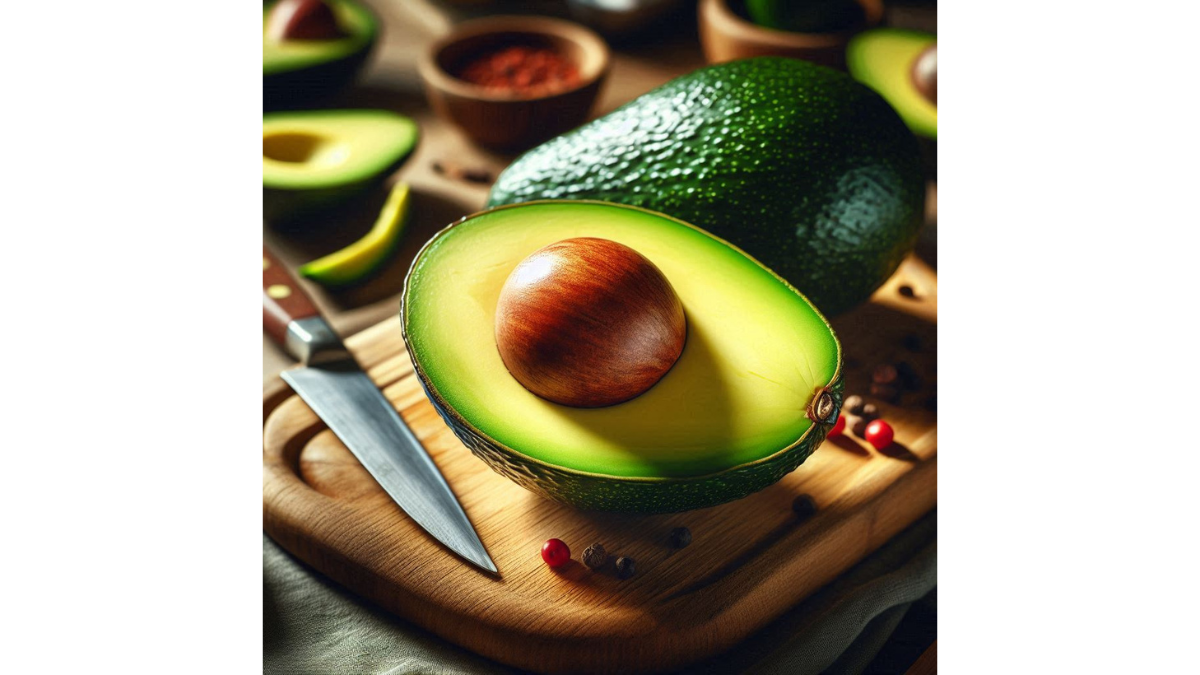Unlocking the Nutritional Value: A Deep Dive into Avocado Calories

Unlocking the Nutritional Value: A Deep Dive into Avocado Calories – The world of nutrition can sometimes seem overwhelming, especially with the plethora of foods available today. One food that consistently stands out in discussions about health and diet is the humble avocado. Known for its creamy texture and rich flavor, avocados are more than just a trendy addition to your toast or salad. They pack a nutritional punch that makes them a worthy subject in the realm of eating consciously and healthily.
Overview of Avocado Nutrition
As a self-proclaimed avocado lover, I still remember the first time I sliced into one of these green wonders. The moment I tasted it, I was hooked—not just on the flavor but on the remarkable health benefits hidden within. Did you know that a standard Hass avocado contains approximately 240 calories? That might sound like a lot for one fruit, but when you delve deeper into its nutritional profile, you’ll see why those calories are worth it. Avocados are rich in beneficial macronutrients, primarily healthy fats. Here’s a brief overview of what you’ll find in an average medium-sized avocado:
- Calories: ~240
- Total Fat: 22g
- Saturated Fat: 3g
- Monounsaturated Fat: 15g
- Polyunsaturated Fat: 2.5g
- Carbohydrates: 12g
- Dietary Fiber: 10g
- Sugars: 1g
- Protein: 3g
You’ll notice a high fat content, but it’s essential to understand that most of the fat comes from heart-healthy monounsaturated fats, which can help reduce bad cholesterol levels. Additionally, avocados contain a host of vitamins and minerals, including potassium, vitamin K, vitamin E, and various B vitamins. This nutrient-dense profile makes avocados not just a delicious choice but a healthful one, too. One of my favorite ways to enjoy avocados is in a morning smoothie, blended with spinach and banana for a protein-packed breakfast that keeps me fueled well into the afternoon.
Importance of Understanding Avocado Calories
Now that you have a taste of avocado nutrition, let’s shift gears to calorie consideration—a crucial aspect if you’re mindful of what you’re consuming. Understanding the calorie content of avocados is essential, especially if you’re trying to manage your weight or fit specific dietary guidelines. You might be wondering, “What’s the big deal about calorie counting?” Here are a few reasons why it matters:
- Portion Control: Knowing how many calories are in an avocado can help you monitor your portion sizes. Without this knowledge, it’s easy to overindulge in even the healthiest foods. A half avocado might be the perfect serving to enjoy the health benefits without going overboard.
- Dietary Goals: Everyone’s dietary needs are different. Whether you’re trying to lose weight, build muscle, or maintain health, being aware of avocado calories can aid in achieving your individual goals. If your calorie intake is too high, you may miss out on nutrients from other foods.
- Balancing Your Plate: If you’re aware of how many calories are in your food choices, it allows you to balance your meal more effectively. Pairing avocado with lower-calorie, nutrient-dense foods such as vegetables or whole grains can create a wholesome meal without excess calories.
- Mindful Eating: Understanding calorie content promotes a mindset of mindfulness when it comes to food choices. It encourages you to ask questions about what you eat, ultimately fostering a more conscious and healthier relationship with food.
- Holistic Nutrition: Lastly, grasping the purpose of calories transcends mere counting. It allows for a more holistic view of nutrition where you appreciate the role of individual foods in your overall diet.
Avocado Calorie Breakdown
As we delve deeper into “Unlocking the Nutritional Value: A Deep Dive into Avocado Calories,” it’s time to break down the nutritional components that make the avocado not just delicious but also remarkably beneficial for your health. When you understand how macronutrients and micronutrients contribute to the overall calorie content, you can appreciate how avocados can fit into a balanced diet.
Macronutrients in Avocado
Avocados are frequently praised for their unique macronutrient profile, which is distinct from that of most other fruits. While many fruits primarily provide carbohydrates, avocados are celebrated for their healthy fats. Let’s explore how each macronutrient contributes to the overall profile of an avocado.
- Fats: Avocados contain about 22 grams of fat per medium avocado, accounting for around 80% of the fruit’s calories. Here’s the breakdown:
- Monounsaturated Fat: Approximately 15 grams
- Saturated Fat: About 3 grams
- Polyunsaturated Fat: Roughly 2.5 grams
- Carbohydrates: Avocados have about 12 grams of carbohydrates. While that sounds modest, it’s essential to note that:
- Dietary Fiber: 10 grams of the carbohydrate content consists of fiber.
- Protein: On average, you’ll find approximately 3 grams of protein in a medium avocado. While it’s not a complete protein source like meat or dairy, it still contributes to your overall daily protein intake and is an excellent plant-based option to include in your diet.
In summary, the macronutrients in avocados—primarily healthy fats, adequate fiber, and a touch of protein—make them a unique addition to meals and snacks, ensuring that every bite contributes to your dietary health.
Micronutrients in Avocado
Now, let’s turn our focus to the micronutrients found in avocados—those vitamins and minerals that may not be needed in large quantities but are crucial for maintaining overall health.
- Vitamins:
- Vitamin K: A medium avocado provides about 30% of your recommended daily intake. Vitamin K plays a vital role in blood clotting and bone health.
- Vitamin E: With approximately 10% of your daily value per avocado, Vitamin E is an antioxidant that protects cells from oxidative stress.
- B Vitamins:
- Folate (B9): Especially important for pregnant women, avocados provide about 20% of your daily needs. Folate is essential for DNA synthesis and repair.
- B6: This vitamin plays a key role in brain health, affecting mood and cognitive function.
- Minerals:
- Potassium: Avocados are very high in potassium, containing about 14% of your daily intake. This mineral helps maintain proper blood pressure and balance fluids in your body.
- Magnesium: Contributing about 7% of your daily needs, magnesium is essential for over 300 biochemical reactions in the body, including nerve and muscle function.
- Antioxidants:
- Avocados also contain phytochemicals like lutein and zeaxanthin, which are primarily known for their roles in eye health.
To put it all into perspective, you can see how avocados provide an impressive range of micronutrients that support various aspects of health. In summary, understanding the macronutrient and micronutrient composition of avocados helps clarify their role in a balanced diet. These green fruits are not only calorie-rich but also packed with vitamins, minerals, and healthy fats that contribute positively to your overall well-being. When you incorporate avocados thoughtfully into your meals, you truly embrace their nutritional value, paving the way for a healthier lifestyle.
Health Benefits of Avocado Calories
Having explored the macronutrient and micronutrient composition of avocados, it’s time to dive into the real-world implications of including these fruits in your diet. One of the most compelling aspects of avocados is how their calories contribute to significant health benefits. From weight management to heart health, knowing how avocados align with these benefits can motivate you to enjoy them more regularly.
Weight Management
Let’s begin with one of the most common dietary concerns: weight management. When my friend decided to adopt a healthier lifestyle, she quickly became wary of calorie-dense foods. However, she soon learned that not all calories are created equal—especially when it comes to avocados.
- Satiety and Fullness: One of the key reasons avocados are excellent for weight management is their high fiber and healthy fat content. The combination of these nutrients promotes satiety, making you feel full and satisfied after a meal. This can help prevent those pesky cravings that lead to overeating.
- Fiber: An average avocado provides about 10 grams of fiber, which slows down digestion and helps regulate appetite. Research indicates that diets high in fiber can lead to reduced caloric intake.
- Nutrient Density: Unlike many calorie-dense snacks that come with little nutritional value, avocados provide a wealth of vitamins, minerals, and healthy fats per calorie. This means that even though avocados are relatively high in calories, you’re getting substantial nutrition for those calories.
- A balanced approach could include using avocado slices instead of high-calorie condiments or spreads, thereby upping nutritional content without sacrificing taste or quality.
- Healthy Substitutions: Incorporating avocados into your meals allows you to make healthy swaps. For example, replacing mayonnaise in your sandwiches with smashed avocado not only keeps the flavor but also adds beneficial nutrients.
In my own experience, since introducing half an avocado into my morning smoothie or adding it to salads, I’ve noticed a significant decrease in mid-morning snack cravings, allowing me to manage my weight more effectively while still enjoying flavorful meals.
Heart Health
Next up is heart health, an aspect of wellness that garners attention for good reason. The prevalence of heart disease underscores the necessity of dietary choices that promote cardiovascular well-being.
- Healthy Fats: Avocados are rich in monounsaturated fats, which are pivotal in maintaining heart health. Research has shown that these fats can lower bad (LDL) cholesterol while boosting good (HDL) cholesterol levels. A study published in the “Journal of the American Heart Association” found that incorporating avocados into a healthy diet significantly reduced LDL cholesterol levels in participants.
- Studies indicate:
- Avocados can reduce bad cholesterol levels by up to 20%.
- Partaking in a diet rich in healthy fats from avocados is associated with lower cardiovascular disease risk.
- Studies indicate:
- Potassium: Another factor contributing to heart health is the impressive potassium content found in avocados. As mentioned earlier, avocados provide around 14% of your daily potassium needs. This mineral plays a key role in regulating blood pressure—important for reducing the strain on your heart.
- Anti-Inflammatory Properties: Avocados contain multiple antioxidants and phytochemicals, including carotenoids, which are known for their anti-inflammatory and heart-protective properties. Consuming foods that are rich in antioxidants can also help combat oxidative stress, a key player in the development of heart disease.
To illustrate these benefits, I recall a family gathering where my uncle, a long-time cardio health advocate, praised the avocado as a powerhouse for heart health. He explained how he started making avocado-based dressings and dips to enhance his diet, all while improving his heart health indicators during check-ups.
- Blood Sugar Control: Interestingly, avocados have a low glycemic index, making them a smart choice for those managing blood sugar levels. Their combination of healthy fat and fiber helps prevent rapid spikes in blood sugar, thus supporting overall heart health.
Avocado Calories in Different Avocado Varieties
Now that we’ve explored the health benefits linked to avocado calories, let’s shift our focus to the various types of avocados available in the market. You may be surprised to learn that not all avocados are created equal, especially in terms of calorie content and nutritional value. In this section, we’ll dive into two popular varieties: the Hass avocado and the Florida avocado. By understanding their differences, you can choose the best option to fit your dietary goals and preferences.
Hass Avocado
The Hass avocado is likely the one you’re most familiar with. With its pebbly skin, deep green to black coloring when ripe, and buttery texture, it has become a staple in households and restaurants alike.
- Caloric Content: On average, a medium Hass avocado (about 150 grams) contains approximately 240 calories. This caloric value is significantly due to its rich healthy fat content.
- Fat: About 22 grams total, primarily monounsaturated.
- Carbohydrates: Roughly 12 grams, including around 10 grams of fiber.
- Protein: Approximately 3 grams.
- Flavor and Texture: The Hass variety has a creamy, nutty flavor that makes it incredibly versatile in both sweet and savory dishes. Whether you’re mashing it for guacamole or blending it into a smoothie, the Hass avocado adds a richness that’s hard to beat.
- Popularity and Availability: Given its popularity, the Hass avocado is available year-round in most markets, making it a reliable choice for your breakfast toast or brunch spread.
Having tried various variations of guacamole, I must confess, nothing beats the creaminess of a ripe Hass avocado! It elevates every dip to a new level of deliciousness.
- Nutritional Benefits: In addition to low cholesterol and healthy fats, the Hass avocado delivers an impressive array of nutrients, making it beneficial not just for taste but also for overall health. They offer a good source of vitamins E, K, and folate.
- Shelf-Life: One downside to Hass avocados is that they can bruise easily. If you’re like me and often find yourself with a slightly brown avocado half, try squeezing some lemon juice to preserve its color and prevent spoilage!
Florida Avocado
Now let’s explore the Florida avocado, which is quite different from its more famous cousin. This variety is often larger and has a smoother, thinner skin, with a light green color that remains even when ripe.
- Caloric Content: On average, a medium Florida avocado (also around 150 grams) contains about 320 calories, making it slightly more calorically dense than the Hass variety.
- Fat: Approximately 29 grams, with a healthier fat profile similar to that of the Hass.
- Carbohydrates: Roughly 17 grams, with about 12 grams of fiber.
- Protein: Approximately 4 grams.
- Flavor and Texture: Florida avocados have a milder, less creamy flavor compared to Hass avocados. They tend to have a drier texture, which can make them less preferable for applications like guacamole but great for salads and sandwiches.
- Nutritional Benefits: Florida avocados pack quite a punch in terms of vitamins and minerals but, due to their larger size, they offer more calories. They are a good source of potassium and vitamins K and B6.
- Cooking Applications: If you’re looking to use avocados in a recipe that requires dicing or slicing—like adding to salads or sandwiches—the Florida avocado is more suited due to its firmer texture.
- Availability and Use: Florida avocados are more seasonal than Hass avocados, typically peaking from summer through fall. When you find them in stores, they’re often larger and may have a lighter price tag, which can make them an economical choice for families.
In a past summer gathering, I experimented with a tropical salsa using diced Florida avocados, combining them with mango and red onion. The milder flavor complemented the dish perfectly, making it a refreshing addition to grilled fish tacos.
Summary
Understanding the calories and nutritional value of different avocado varieties can help you make informed dietary decisions. The Hass avocado, with its richer taste and creamy texture, is ideal for spreads and dips, while the Florida avocado, despite its higher caloric content, shines in salads and as a neutral ingredient in various dishes. Both varieties contribute beneficial calories and nutrients, but your choice ultimately depends on your specific culinary needs and health goals. Whether you’re team Hass or team Florida, there’s no denying that these avocados pack a nutritional punch that can elevate any meal. Enjoy experimenting with both varieties to discover which one you prefer!
Avocado Calorie Comparison with Other Fruits
Having explored the nutritional breakdown of different avocado varieties, it’s time to place avocados in the broader context of fruit consumption. Many individuals tend to focus on calorie counts when choosing fruits, so comparing avocados with other popular fruits can provide helpful insights into making nutritious choices without sacrificing flavor. In this section, we’re going to compare avocados with two beloved fruits: bananas and apples.
Avocado vs. Banana Calories
The banana is often heralded as the quintessential on-the-go snack. With its convenience and natural sweetness, bananas have earned their place in many diets around the globe. But how do they compare to avocados in terms of calories and nutrients?
- Caloric Content:
- A medium-sized banana (about 118 grams) contains roughly 105 calories.
- In contrast, a medium Hass avocado contains about 240 calories for a similar serving size (typically around 150 grams).
- Macronutrients:
- Banana:
- Carbohydrates: About 27 grams (with 14 grams of sugars).
- Fat: Approximately 0.3 grams.
- Protein: Roughly 1.3 grams.
- Avocado:
- Carbohydrates: About 12 grams (with only 1 gram of sugar).
- Fat: Approximately 22 grams (predominantly healthy fats).
- Protein: Around 3 grams.
- Banana:
- Nutritional Benefits:
- Bananas are known for being high in potassium, which supports heart health and maintains healthy blood pressure levels. They are also a great source of vitamin C and vitamin B6.
- On the other hand, avocados provide heart-healthy monounsaturated fats, higher fiber content, and an array of essential vitamins like vitamins E, K, and B.
- Personal Perspective: I remember the first time I made a smoothie with both avocado and banana. The creaminess of the avocado paired with the natural sweetness of the banana created a delicious, nutrient-dense blend that fueled me through my morning workout. It was a delightful way to enjoy the benefits of both fruits!
In summary, while bananas have fewer calories, they are predominantly carbohydrate-based. In contrast, avocados offer healthier fats and higher fiber, making them a satiating option that can support weight management.
Avocado vs. Apple Calories
Next up, let’s turn our attention to apples—one of the most popular fruits worldwide. With their crisp texture and a sweetness that can be both refreshing and satisfying, apples are a staple in many households. But how do they stack up against avocados when it comes to calories and nutrition?
- Caloric Content:
- A medium-sized apple (about 182 grams) contains roughly 95 calories.
- In contrast, a medium Hass avocado has approximately 240 calories for a similar serving size (150 grams).
- Macronutrients:
- Apple:
- Carbohydrates: Approximately 25 grams (with 19 grams of sugar).
- Fat: About 0.3 grams.
- Protein: About 0.5 grams.
- Avocado:
- Carbohydrates: About 12 grams (with only 1 gram of sugar).
- Fat: Approximately 22 grams.
- Protein: Around 3 grams.
- Apple:
- Nutritional Benefits:
- Apples are rich in dietary fiber (particularly soluble fiber), which can aid in digestion and help with weight management. They also provide a good source of vitamin C and various antioxidants that support overall health.
- Avocados, however, deliver healthy monounsaturated fats, higher protein, and a bevy of vitamins and minerals that benefit heart and overall health.
- Anecdote: I distinctly remember packing apples as a kid for school lunches. They were easy to grab and munch on during the day. However, since discovering how to incorporate avocados into my salads and sandwiches, I found that I felt fuller longer, thanks to their rich fat content.
In conclusion, while apples are low in calories and high in fiber, avocados provide a different nutritional profile that excels in healthy fats and protein. If you want to boost your meals with more satiety while benefiting from essential nutrients, incorporating avocados alongside your favorite fruits could be a wise choice.
Summary
The comparison of avocado calories with those of bananas and apples reveals significant differences in caloric content and nutritional benefits. While bananas and apples offer lower-calorie options that are high in carbohydrates and fiber, avocados deliver healthy fats and a mix of vitamins and minerals that can enhance overall health. Depending on your dietary goals, each fruit has its advantages. Whether you enjoy them on their own or combine them in culinary creations, incorporating a variety of fruits can ensure your diet remains diverse, flavorful, and nutritious!
You might also find this article helpful Building a Strong Foundation :Balanced Diet Enhances Your Health






3 Comments